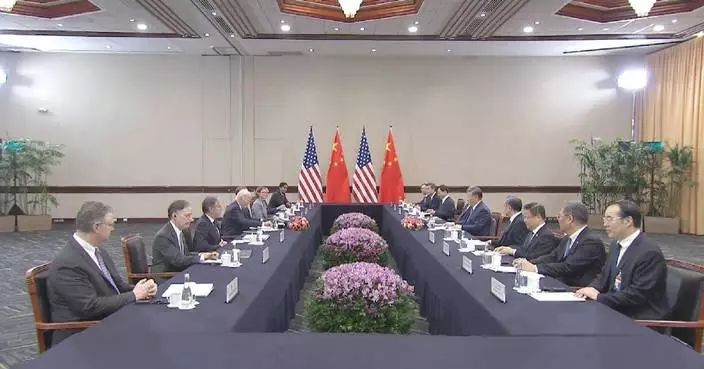Incentive tax policies have revived the stagnant property market across China, catalyzing housing transactions, market confidence and homebuyers' financial flexibility and affordability.
The new policies, effective from December 1, 2024, were jointly introduced by the Ministry of Finance, the State Tax Administration and the Ministry of Housing and Urban-Rural Development.
Individuals purchasing their only residential property or a second home, as long as the area does not exceed 140 square meters, will pay deed tax at a rate of one percent across the country. For properties with an area exceeding 140 square meters, the deed tax will be levied at a rate of 1.5 percent.
People looking to improve their living conditions by selling their current homes to purchase new ones are the most active clients following the introduction of the new policies, as they benefit from both selling and buying.
"A common question is how much they can save with the current reduction in deed tax. Saving hundreds of thousands would provide more options for choosing different areas," said Wang Guoyi, a real estate agent.
With simple algorithm, in terms of deed tax for home purchases, the tax rate for first-time homebuyers has not changed, but the area eligible for benefits has increased from 90 square meters to 140 square meters. For buyers of a second home, the savings are even greater, with tax rates reduced by two percentage points and one percentage point, depending on whether the area is above or below 140 square meters. For instance, on a 100-square-meter house priced at 10 million yuan, the deed tax savings could amount to 200,000 yuan.
Additionally, authorities will clarify policies on value-added taxes and land appreciation taxes in line with the scrapping of standards for ordinary and non-ordinary housing, reduce second-hand housing transaction costs, and keep tax burdens on real estate companies stable.
"For homeowners, we've noticed that recently the room for price negotiation has significantly narrowed. By offering tax concessions during the transaction, it positively helps facilitate quicker deals and promotes market circulation," said Lu Wenxi, a real estate analyst from Centaline Property in Shanghai.
Multiple new developments in Shenzhen City, south China's Guangdong Province have also welcomed bunches of clients recently.
Sales from new deals in October have already exceeded the total sales for all of last year. With further reductions in deed tax, sales are expected to rise even more.
"Transaction volumes have increased by approximately 15 percent to 25 percent, reflecting stronger buyer confidence. This is partly due to a reduction in overall home-buying costs," said Zhang Yuanyuan, a real estate marketing manager.

Incentive tax policies revive property market across China









